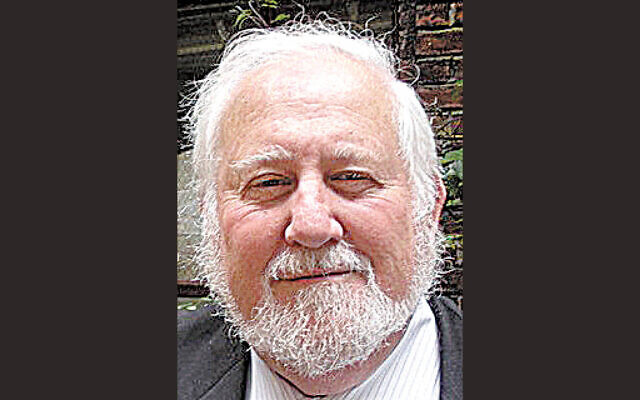A Death in the Family
The Jewish way of grieving is the price you pay for the positive relationship you had with the person you are grieving over.
A week ago, my niece called to tell me that her father died in New York City. He was my brother-in-law, Marvin Rosengart, my sister’s husband.
I had a general view that I would make every effort to attend only simcha celebrations, and I didn’t think I had to attend funerals when they were a long distance away. I could attend a funeral on Zoom or skip it, but in this case, it was different. I knew Marvin across the 59 years of their marriage. He was a brother to me. I had to support my sister and the family.
My daughter, Pamela, came with me and we decided to stay for the entire shiva week. We wanted to be a part of the grieving process, to talk about Marvin’s life to elevate ourselves along with the rest of the family. Marvin had lived a long, successful life and died at age 92.5 after a gradual deterioration of his physical condition. The family knew that the end was coming and they could prepare for it; there was no surprise.
Marvin was an entrepreneur. His older brother taught him to be a diamond setter. What is the secret for a successful career? Focus! Pick a business career and focus on it. People will pay for expertise, whatever the subject. Learn everything you can about that subject to be as good as you can. Marvin did just that and became one of the best diamond setters in Manhattan. As a result, he was never without work.
In trying to summarize Marvin’s life, the most important thing was that he cared deeply about his family, and he focused on making a living for them. Work was a very important aspect of his life. He worked without a break until he retired at about 85 years old. I don’t want to minimize his work.
For Marvin, it provided financial security, something he constantly worried about. He took his money and invested it in the stock market. He made his own investment decisions because he trusted his own judgment. Work also provided social connections for him; it allowed him to improve his skills to become one of the best.
His work contributed to society. He often saw the expensive diamond necklaces he finished displayed in magazines and on the necks of women, along with the expensive diamond rings that he set.
Throughout the week, I had a chance to know more intimately many of my relatives, as well as my sister’s friends and her children. At a wedding, a bar mitzvah or a bat mitzvah, the crowd is big, the music is loud and conversation is difficult. It is difficult to talk, and the focus is on the party and the celebration.
However, at a shiva, the focus is on the deceased, on that person’s life and achievement. You hear about what was important in his or her life, and it helps to put your own life in perspective.
Here’s what Marvin taught me:
• Love unconditionally. He never stayed angry or upset for very long. He was a sweet and gentle man.
• In business and in life, trust is everything. Marvin was often trusted with extremely valuable diamonds. The entire industry operates on a high level of trust.
• Your word is your bond. Marvin made it a priority to meet the time schedule of his customers, as well as his family’s needs.
• Get up early and you will get a lot done. Marvin was usually at work by 5-6 a.m.
• When you speak, be sure what you say is important. Marvin did not say much, but when he did, you listened and considered his opinion carefully.
• Working alone means you are always in charge. With no disagreement in his business decisions, he slept well at night.
The Jewish way of grieving is the price you pay for the positive relationship you had with the person you are grieving over. Whatever pain you feel about the loss is lessened by realizing the privilege you had in knowing the deceased person.
The loss of a loved one is painful and emotional, but the benefits of knowing such a person provide the bottom line: Use what you learn from someone you admire to elevate yourself.




comments